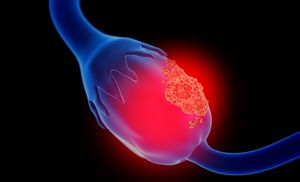Asthma and food hypersensitivity at age 12 is associated with an increased risk of having irritable bowel syndrome (IBS) at 16, a new study presented at the United European Gastroenterology (UEG) Week Virtual 2020
has found.
The research, conducted at the University of Gothenburg and the Karolinska Institute in Stockholm, Sweden, analysed the health of 2,770 children from birth to the age of 16.
During the study, children and parents were asked to complete questionnaires regarding asthma, allergic rhinitis, eczema, and food hypersensitivity at ages one, two, four, eight, 12 and 16 years. At 16, children answered questions based on the Rome III Questionnaire on Paediatric Gastrointestinal Symptoms, allowing participants to be categorised into IBS, functional abdominal pain and function
dyspepsia groups.
Those with IBS at 16 were almost twice as likely to have had asthma at the age of 12 (11.2 per cent vs 6.7 per cent). Almost half of children with IBS at 16 (40.7 per cent) reported food hypersensitivity at 12 years (compared to 29.2 per cent of children without IBS at 16 years).
The research also showed that asthma, food hypersensitivity and eczema were all associated with an increased risk of concurrent IBS at 16 years.
The population-based cohort study was led by Dr Jessica Sjölund from the Institute of Medicine at the University of Gothenburg, Sweden.
Those with IBS at 16 were almost twice as likely to have had asthma at the age of 12 (11.2 per cent vs 6.7 per cent)
“The associations found in this large study suggest there’s a shared pathophysiology between common allergy-related diseases and adolescent irritable bowel syndrome,” she explained.
“We knew that allergy and immune dysregulation had been suggested to play a role in the development of IBS, but previous studies on allergy-related diseases and IBS are contradictory.
“This knowledge could open up for developing new treatment methods for adolescent IBS, targeting processes of low grade inflammation seen in these allergy-related diseases.”
IBS affects more than one-in-10 people and is the most common functional gastrointestinal disorder. It can be extremely disabling for patients, with abdominal cramps, bloating, diarrhoea or constipation. There are often difficulties in diagnosing functional gastrointestinal disorders like IBS and just one-in-three people with symptoms of IBS or constipation consult a healthcare professional.













Leave a Reply
You must be logged in to post a comment.